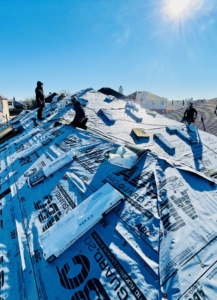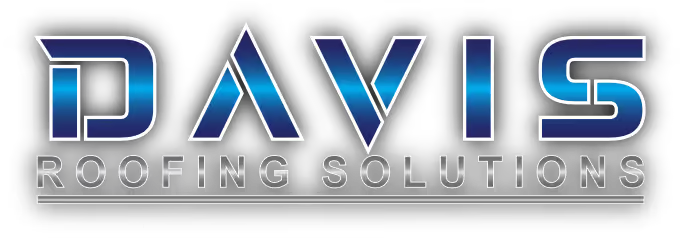Exploring Commercial Roofing Options: Solutions for Businesses
When it comes to commercial properties, having a reliable and durable system is essential for the protection of assets, employees, and customers. Choosing the right commercial roofing options can significantly impact the longevity, energy efficiency, and overall functionality of your business facility. In this blog post, Davis Roofing Solutions will explore the various commercial roofing options available for businesses. From understanding the unique needs of commercial roofs to exploring different materials, installation methods, and maintenance practices, we’ll provide valuable insights to help you make informed decisions about your commercial roofing needs.
Understanding the Importance of Commercial Roofing
Commercial roofs serve a critical role in safeguarding your business. Understanding their importance is key to making informed decisions regarding your options:
- Asset Protection: A well-maintained and reliable system protects your valuable assets, including inventory, equipment, and infrastructure, from weather elements and potential damage.
- Energy Efficiency: Properly installed systems contribute to energy efficiency by providing insulation and reducing heat transfer. This helps lower utility costs and create a comfortable indoor environment.
- Business Continuity: A reliable commercial roof ensures the continuity of your business operations. By preventing leaks and damage, it helps maintain a safe and functional working environment, allowing your business to operate smoothly.
Common Commercial Roofing Materials
Several commercial roofing materials are available, each with its unique characteristics and benefits. Consider the following options:
- Thermoplastic Olefin (TPO): TPO roofing offers excellent durability, energy efficiency, and resistance to UV radiation. It provides a cost-effective solution for businesses seeking a single-ply membrane roofing system.
- Ethylene Propylene Diene Monomer (EPDM): EPDM is a synthetic rubber roofing material known for its exceptional weather resistance and longevity. It is resistant to tears, impacts, and harsh weather conditions, making it a popular choice for commercial roofs.
- Metal Roofing: Metal roofing offers durability, longevity, and versatility. It is available in various styles, including standing seam, metal shingles, and corrugated panels. Metal roofs are known for their energy efficiency, low maintenance, and aesthetic appeal.
- Built-Up Roofing (BUR): BUR consists of multiple layers of bitumen and reinforced fabric, offering a durable and long-lasting roofing system. It provides excellent waterproofing capabilities and can withstand heavy foot traffic.
Factors to Consider in Commercial Roofing
When selecting this option, several factors should be taken into consideration:
- Roofing Requirements: Assess your specific roofing needs, including the size, slope, and complexity. This will help determine the most suitable roofing material and installation method.
- Budget and Long-Term Costs: Consider your budget and the long-term costs associated with different roofing materials. While some options may have a higher upfront cost, they may offer greater durability and energy efficiency, resulting in long-term savings.
- Climate and Weather Conditions: Take into account the local climate and weather patterns when selecting a material. Consider factors such as resistance to UV radiation, high winds, heavy rain, and temperature fluctuations.
- Energy Efficiency: Energy-efficient roofing options can significantly impact your utility costs. Look for materials with high reflectivity and insulation properties to reduce heat transfer and improve energy efficiency.
Professional Installation and Maintenance
To ensure the optimal performance and longevity of your commercial roofing system, professional installation and regular maintenance are crucial:
- Professional Installation: Work with experienced contractors who specialize in the installation of this systems. They have the expertise, equipment, and knowledge to ensure proper installation and adherence to industry standards.
- Regular Inspections: Schedule regular roof inspections to identify any potential issues or damage early on. Timely repairs can prevent minor issues from escalating into costly repairs or roof replacements.
- Preventive Maintenance: Implement a comprehensive preventive maintenance program for your commercial roof. This may include regular cleaning, debris removal, gutter maintenance, and addressing any potential issues identified during inspections.
- Roof Coatings: Consider applying roof coatings as a protective layer for your commercial roof. Coatings can enhance durability, waterproofing capabilities, and energy efficiency, extending the lifespan of your roofing system.
Conclusion
Choosing the right option is crucial for the long-term success and functionality of your business. Whether you opt for TPO, EPDM, metal roofing, or built-up roofing, consider your specific needs, budget, climate, and energy efficiency requirements. Remember to work with professional roofing contractors who specialize in commercial roofing installation and maintenance. Davis Roofing Solutions is here to assist you in exploring and selecting the best commercial roofing option for your business. Contact us today to discuss your commercial roofing needs and ensure the protection and longevity of your valuable assets.




